The first time I heard that there was a potential program to bring badminton equipment to Haiti just a few weeks after the giant earthquake, I first felt that it didn’t make much sense. When people do not have enough to eat, or a roof to sleep under, what could they possibly do with a badminton racket?
By Raphael Sachetat, in Haiti. Photos (copyright): Badmintonphoto/Solibad
I was told that, on the contrary, there was a need to bring people a way to forget about the earthquake, to feel alive again, by playing and enjoying themselves. And that badminton, more than any other sport, could help some to reconstruct their lives.
Today, I’m back from Haiti, and I have to admit that they were right, and that this program was definitely worth it. Only for the few minutes I spent with Kaveh, the Iranian professional badminton player, James Tjan, the Dutch Coach, Sylvain Herault, the Coordinator for Peace and Sport, and Michel Fline, Coordinator on site for the NOC, in the middle of nowhere, on a field where the earth was cracking from drought and where we have set up a temporary badminton net. Playing conditions were out of this world. Amazing landscape, strong wind, heavy sun. And, most of all, smiles all over from kids who, one after the other, were clearly enjoying themselves, taking the badminton racket and trying to hit the shuttles one of us was feeding them, before the wind blew the shuttles away.
During these few seconds, I told myself that this program was worth it. These few minutes, spent in one of the biggest camps near Port au Prince, Haiti’s capital, where hundreds of thousands of tents had been set up after the earthquake, where there is no school for kids to attend and nothing to do. Just the thought of these few minutes gives me goose bumps. What a lesson of life we were given then! It was one amongst many that we learned during these 3 amazing days that we spent in Haiti, which is also the capital of poverty and bad luck in this world.
After the deadly earthquake on January 12th, which killed at least 250 000 people, hurricanes hit the country a few weeks ago, then cholera invited itself to the party, making it even more difficult for people to survive. And as I write these lines, the Hurricane Tomas has just gone right through Haiti, bringing more trouble and a potential raise in cholera cases due to flooding…
Rackets and Smiles
On March 7th 2010, we were launching SOLIBAD – Badminton without Borders, officially outside France. During the press conference – attended by our Ambassadors like Nathan Robertson, Koo Kien Keat and Taufik Hidayat – we had also presented our first project related to badminton, in partnership with Peace and Sport, the foundation supported by Prince Albert de Monaco, which brings peace through sports programs all over the world: “1000 rackets for Haiti”.
It was a bit of a crazy challenge to try to gather equipment and send it to a country where badminton was virtually unknown. A few months later, we had gathered over 750 rackets, some nets and shuttles on top of a lot of sports clothing that Kaveh had gotten, touring the Danish clubs for “lost-and-founds” – over 1,000 pieces of clothing that he had to collect, wash, pack in his small apartment in Copenhagen. Some associations have helped us – some badminton brands like Artengo (Decathlon) and the Guangzhou Badminton Association, which sent 200 rackets to Haiti. Peter Gade even gave his gold medal from the European Championships out for auction to help this project.
With all this support, we landed in Port au Prince a few days ago with the mission to teach 22 local educators – PE teachers – with badminton’s basics, within the program already conceived by Peace and Sport and the local National Olympic Committee. In about 48 hours, Kaveh and James had to give the basics to these 22 coaches – 19 men and 3 women – who are then to go and teach kids in schools and also in all the surviving camps around the region hit by the earthquake. The kids could then use all the equipment that was shipped at the same time. It was almost a mission impossible, yet the enthusiasm, the joy in work shown by the Haitian sports educators made the experience a true success.
We would wake up every morning at 5 am – the first day to actually create the 4 courts with minimum equipment on a grassless football field – the other mornings to make the best out of the little time we had to teach the educators. Kaveh, as an Olympian, was giving a strong rhythm to the badminton lessons, hard but fun to follow for the group. James was following, helping out, giving individual advices to all of them. Sylvain was making sure the logistic of our trip were alright – a tough task when everything is hard to find in the country. He was also helping with translation – most local people speak Creole and French but seldom English. On my side, I was trying to help as I could, both on court with my little badminton knowledge and off court to immortalize the scenes with my camera and video camera.
In 2 days, the most important had to be taught. This was tough, especially for those who hadn’t touched a racket in their life before. But all had a strong will to participate in this program. Some were even asking very precise questions that we had no answers to. And all were still playing after the lessons had ended, 8 hours after they had first entered the courts, telling us that they were eager to try to teach this new game to the kids.
Haiti, a land of paradox
I was lucky enough – while James and Kaveh were teaching their “students” – to visit Port au Prince for a few hours, thanks to NOC’s driver Vincent, an incredible local man, 73 years old, with very dark skin and big, smiling, black eyes. Above all, Vincent displayed amazing knowledge of his country, which he would not leave for any reason in the world. With this accuracy in the way he looks at politics – “all gangsters” he says – and religion, which he feels isn’t helping when people are resigned after all this bad fate.
We went through the poorest parts of the island. I was able to witness such a paradox, between the ruins of hundreds of demolished houses and the colours flashing everywhere. Sadness and happiness at the same time. Death and life. On the wall hiding the ruins of houses that had collapsed and probably still dead people beneath the ruins, naïve and colourful painting were hanging as a sign that life had taken over. Near the demolished cathedral were dozens of Tap Taps – taxis with colourful painting all over, smiling people getting on and off to and from work – when they have any.
United Nation trucks are all around, just like in war time. They are part of the landscape, as are all the big NGO’s which have been in Haiti for more than 9 months now – even before, for some. The presidential elections are soon to be held, with big smiling faces of candidates all over the walls in the city.
Back to the training camp. We finished the program, after going to the Corail Camp. It’s time to say goodbye. “See you later,” rather, as we all know that we will return to Haiti. The island has left something in our hearts that we will only be able to feel again if we come back. We’ll follow this project with passion. It may be only a small seed planted in this luxuriant landscape but the educators thank us warmly and we were all deeply moved by their warm handshakes. I told them I was simply amazed that they could keep up with the smiles and joyful spirit, singng and laughing at all times, when, in our countries like France, people complain and go on strike for no valid reason, when they have all they need. They laughed at me when I told them so.
They were just thankful for us to have come all this way, to have given them the tools to make a change for the kids of their country. It may be a small change, in our opinion, but better than nothing, for now. We had made new friends and already had to leave them.
Now that we are back, of course, we fear for these amazing people, who fight with a smile, we hope that the Hurricane – or a next one to follow up – will not affect them. As soon as we were gone, they probably forgot all about badminton to try to get away from the cyclone. But we knew that as soon as the sun comes up again, they’ll be going back to the dirty roads of the island, to teach, with their usual smiles. With, this time, in their sports bag, a badminton racket…
All photos are under copyright. you may use them ONLY if it is to promote the action of SOLIBAD.
If you wish to help SOLIBAD, please log in to www.solibad.net. You may join the staff, or help in many ways, for the Haiti Project or others.
Any question, send us an e-mail : raphael@solibad.net
![HAITI – When Badminton can make a small change The first time I heard that there was a potential program to bring badminton equipment to Haiti just a few weeks after the giant earthquake, I first felt that it […]](https://www.badzine.net/wp-content/uploads/Newsflash-thumbnail.png)
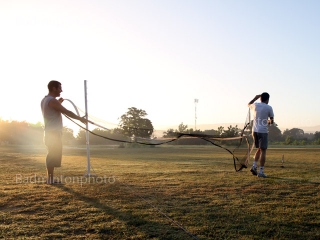
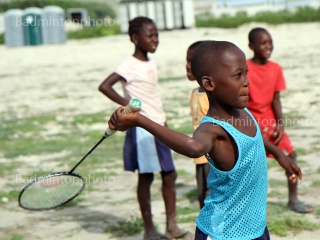
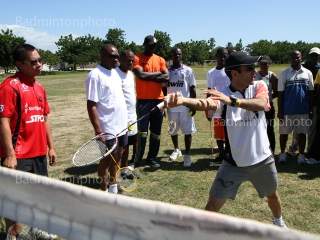
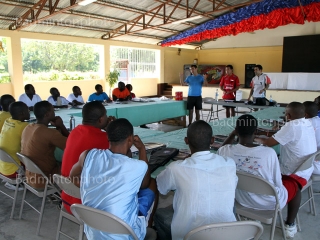
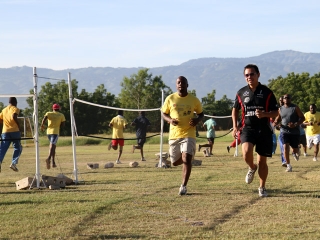

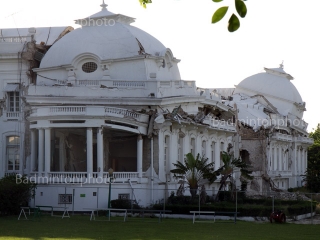
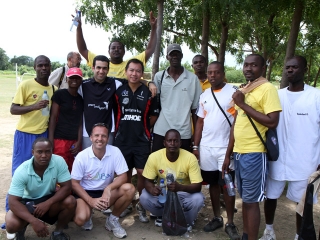

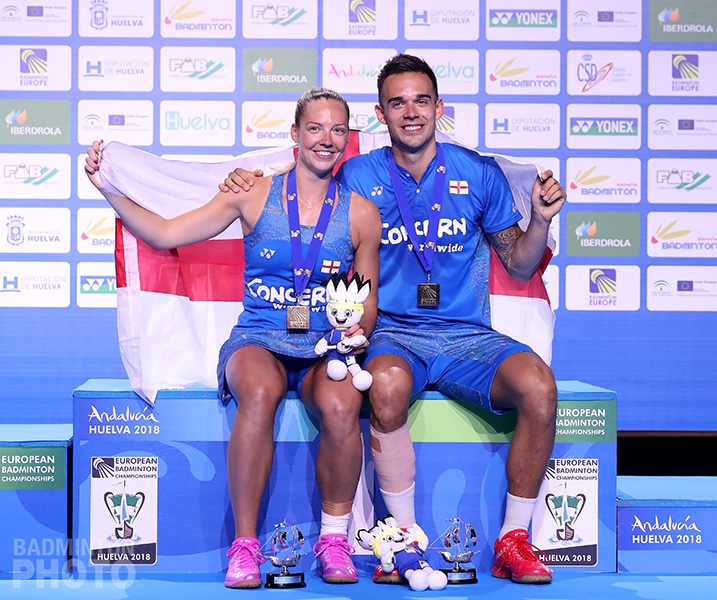
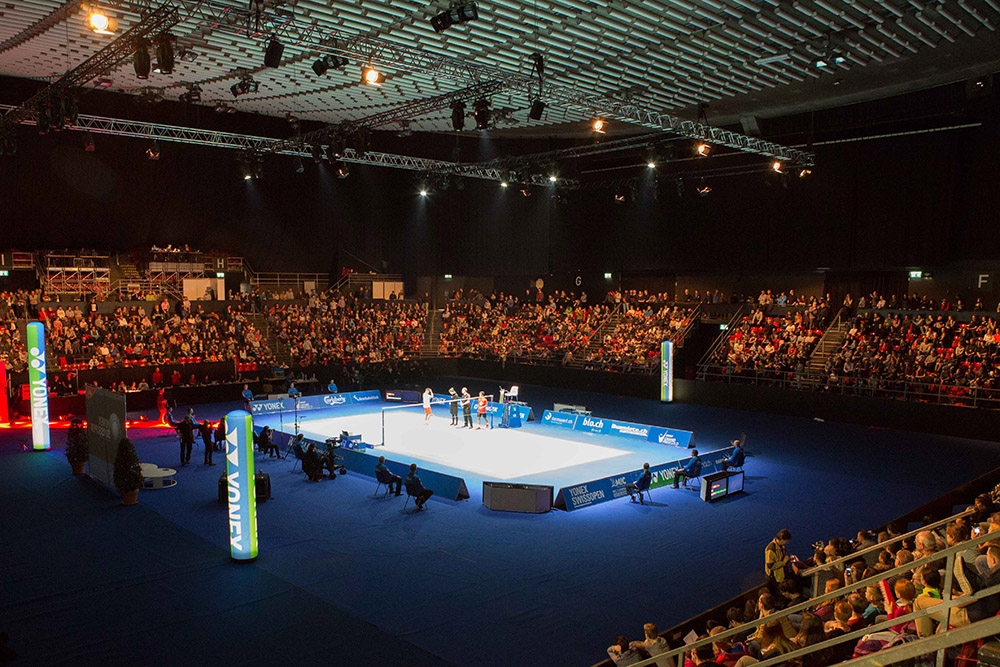
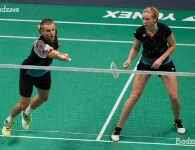
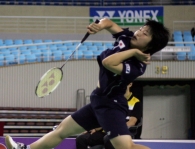
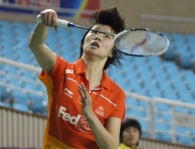
Leave a Reply